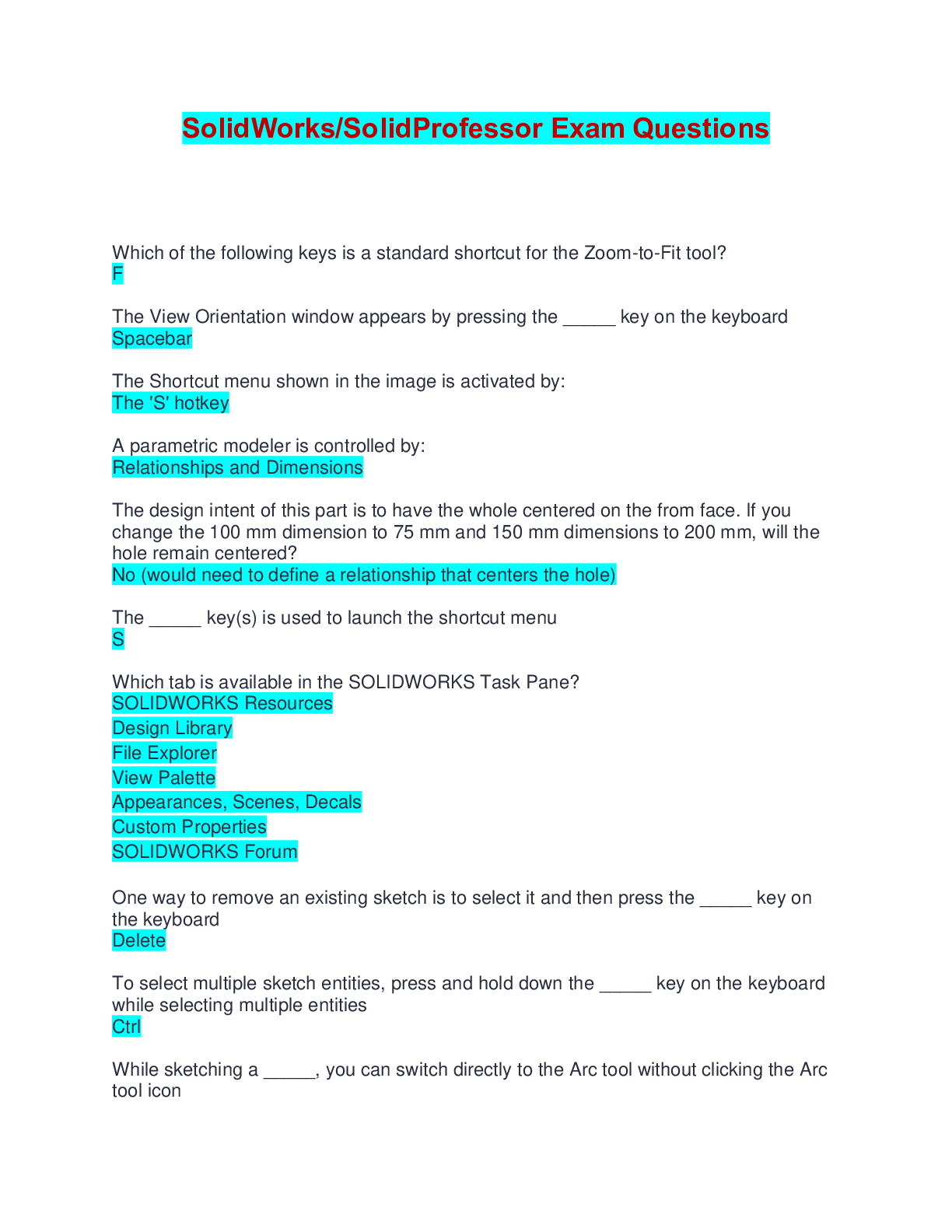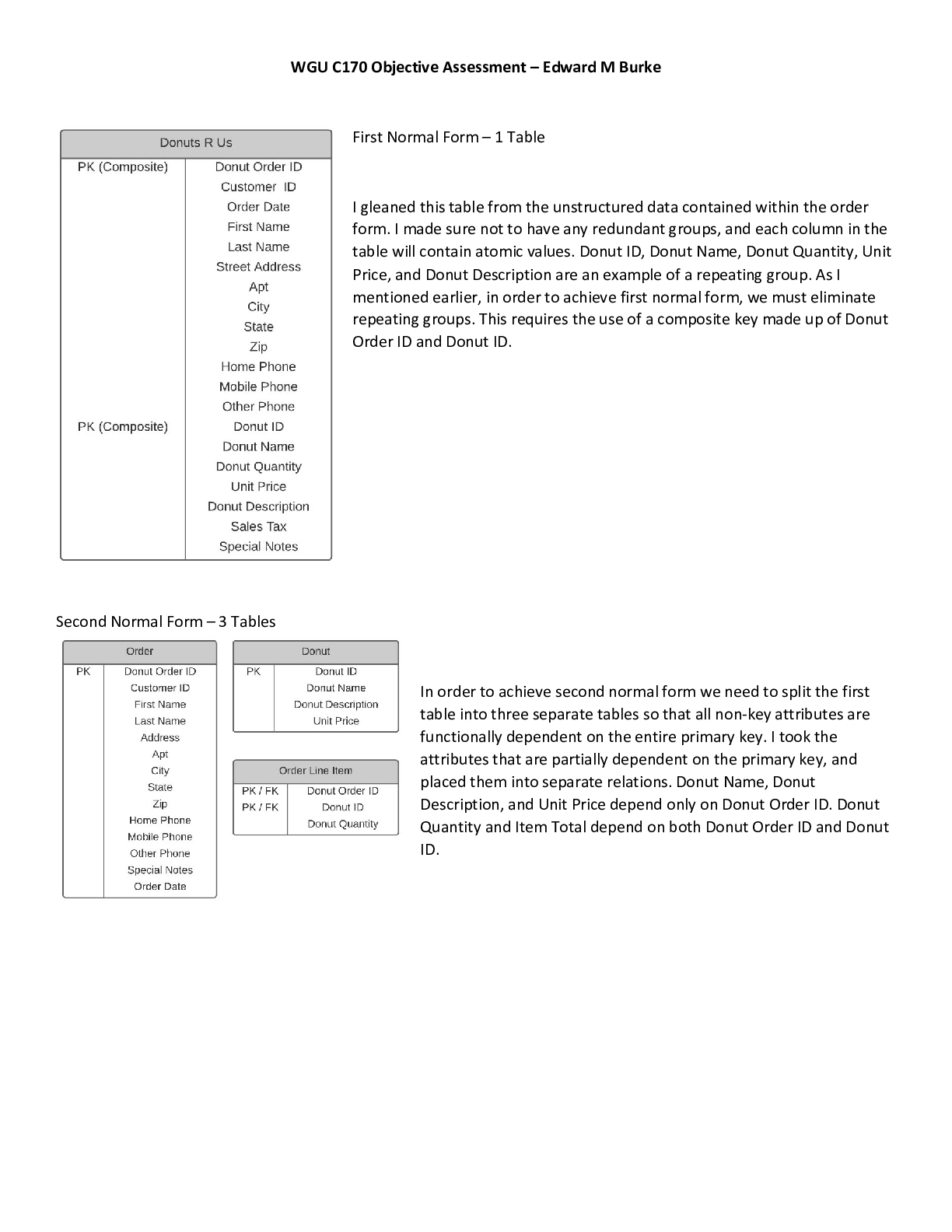
SolidWorks/SolidProfessor Exam Questions | Answered with complete solutions
Database Management > QUESTIONS & ANSWERS > WGU C170 Objective Assessment With Complete Solution (All)
Last updated: 3 years ago
Preview 1 out of 11 pages
Instant download

Buy this document to get the full access instantly
Instant Download Access after purchase
Buy NowInstant download
We Accept:


C170 - Data Management Applications V4.0 - Quiz 3 - WGU WGU C170 - PRE-ASSESSMENT LATEST 2021 GRADED A+ Data Management Applications C170 with complete solution WGU C170 Terms With Complete Solution W...
By Nutmegs 3 years ago
$13
14
Can't find what you want? Try our AI powered Search
Connected school, study & course
About the document
Uploaded On
May 20, 2022
Number of pages
11
Written in
All
This document has been written for:
Uploaded
May 20, 2022
Downloads
0
Views
174
Scholarfriends.com Online Platform by Browsegrades Inc. 651N South Broad St, Middletown DE. United States.
We're available through e-mail, Twitter, and live chat.
FAQ
Questions? Leave a message!
Copyright © Scholarfriends · High quality services·